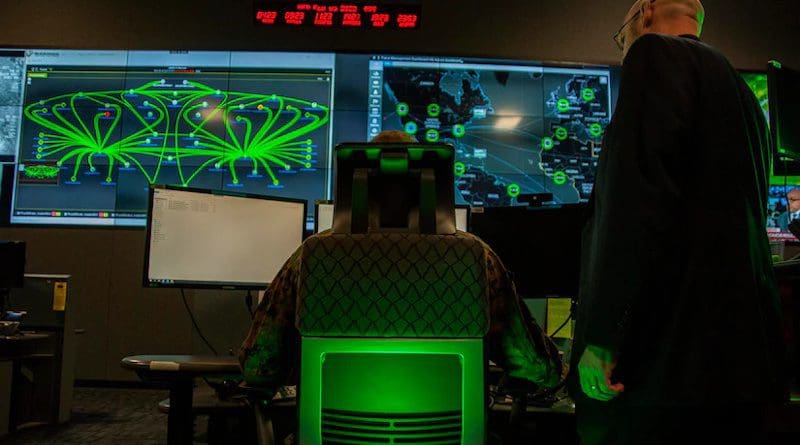Artificial Intelligence, Autonomy Will Play Crucial Role In Warfare
By DoD News
By David Vergun
The use of autonomy and artificial intelligence will play an increasingly vital role in military operations in such places as the Middle East, where U.S. forces no longer have a sizeable military presence, an Army general said.
Lt. Gen. Michael E. Kurilla, commander of the XVIII Airborne Corps, testified at a Senate Armed Services Committee nomination hearing today, considering his promotion to general and assignment to be commander, U.S. Central Command.
The XVIII Airborne Corps at Fort Bragg, North Carolina, has been a leader in the adoption of AI, he said.
The command has taken an approach to its adoption, that includes building a cultural mindset, data literacy, data governance and infrastructure that includes cloud computing, he said.
Also, the corps uses AI in quarterly exercises for target detection. Those exercises include personnel from all six of the military services, he said.
The most recent exercise culminated in a Marine Corps F-35 jet dropping a live, 1,000-pound bomb on an artificial intelligence-derived grid that was one meter off from the surveyed grid, he said.
“We do these exercises quarterly to improve the capability of the targeting ability of the Corps. I would look to take that if confirmed down to Centcom and expound upon that,” he said.
Kurilla explained how targeting can be improved with the aid of AI.
“We can take large pieces of terrain and rapidly identify hundreds of targets, prioritize them based on a high priority target list that determines which ones we should strike with the resources that we have. And then that goes back into our firing solutions. That happens in seconds versus what would take hours normally, or sometimes even days to be able to develop these targets. And it’s doing it in real time at the edge in our command posts and not being tied just back into a garrison computing environment.”
AI would offer tremendous capabilities for counterterrorism in that region as well, he mentioned.
Kurilla also touched on a wide variety of other topics central to Centcom. He identified Iran as the number one malign influence in the region. He also noted that China has made inroads to many U.S. partners in the region, expressing his concerns for those agreements.
As for Afghanistan, Kurilla said the Taliban and the U.S. agree that ISIS-K is an enemy. However, he said he wished that the Taliban would also renounce al Qaeda. He also said he hoped that the U.S. could help Afghanistan, perhaps through the United Nation’s World Food Program, to alleviate the humanitarian crisis.
The topic then turned to Pakistan. The U.S. and Pakistan have not always seen eye-to-eye, but Kurilla said the two nations share an interest in regional stability and countering violent extremist organizations.
Israel was also mentioned. Kurilla said he’s particularly encouraged by the increase of cooperation between Israel and its Arab partners in the region. “Israel brings some very unique capabilities in terms of their military component that they believe they can share with their Arab partners in the region. The air and missile defense is a big area, based on the threat from Iran.”

